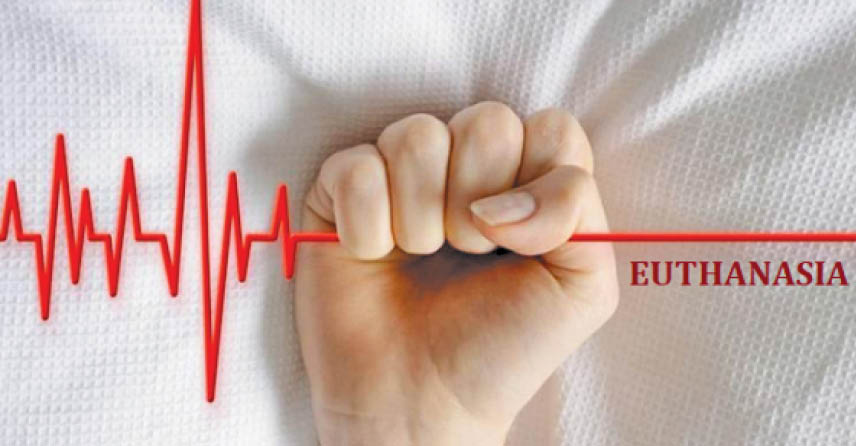Euthanasia And Zoroastrianism
Noshir Dadrawala, scholar in Zoroastrian religion and culture, responds to queries sent in by readers seeking answers to various religious and cultural queries
Query From Parsi Times reader, Zarine Modi:
“Does the Zoroastrian religion permit or support euthanasia? Can one leave written instructions for family and friends to follow, in case of painful terminal medical conditions?”
Noshir Dadrawala Responds:
The term ‘euthanasia’ is derived from the Greek word eu thanatos which means good death. Historian Suetonius described how Augustus Caesar, “dying quickly and without suffering,” in the arms of his wife, Livia, experienced the ‘euthanasia’ he had wished for!
The word ‘euthanasia’ was first used in the medical context by Francis Bacon in the seventeenth century, to refer to an easy, painless, happy death, during which it was the “physician’s responsibility to alleviate the ‘physical sufferings’ of the body.” In current usage, euthanasia has been defined as the “painless inducement of a quick death.”
Thus, euthanasia is the act of deliberately bringing an end to a person’s life, to relieve suffering.
The Zoroastrian Perspective:
The Zoroastrian scriptures are silent on the topic of ‘euthanasia’, as we understand it today, in the modern medical context. Essentially, the Zoroastrian religion (as is the case with almost every other religion) considers taking away life as a sin. In fact, according to the Vendidad, even abortion is considered a sin.
However, there is ‘Active Euthanasia’ and ‘Passive Euthanasia’, and one needs to know and understand the difference between the two. Passive euthanasia is generally accepted worldwide. However, active involuntary euthanasia is illegal in almost all countries. Active euthanasia involves instant and painless termination of life which could be considered sinful from a religious perspective. However, passive euthanasia is about not prolonging life with a ventilator, tubes and other such artificial life support systems and which may not be considered a sin.
The Right To Die With Dignity:
On 9th March, 2018, a five-judge Bench of the Supreme Court of India, comprising the then Chief Justice of India – Dipak Misra, Justice A K Sikri, Justice A. M. Khanvilkar, Justice D Y Chandrachud and Justice Ashok Bhushan, held that, “the right to die with dignity is a fundamental right. An individual’s right to execute advance medical directives is an assertion of the right to bodily integrity and self-determination and does not depend on any recognition or legislation by a State.”
The Supreme Court has interpreted Right To Life, under Article 21, in a very broad manner and has included various human rights under its purview. From Tight To Life to Right To Travel, Right To Dignity, Right To Dignity, Right To Privacy, Right To Pollution Free Environment, etc.
Article 21 of the Indian Constitution includes most of the basic human rights which are essential for a dignified life. In its judgement on 9th March, 2018, the Apex Court has now included ‘Right To Die With Dignity’ as part of Right To Life, under Article 21.
Justice (Dr.) D Y Chandrachud, in his judgement in ‘Common cause v. Union of India’, has also defined the relationship between life and death, as: “Life and death are inseparable. Every moment of our lives, our bodies are involved in a process of continuous change. Millions of our cells perish as nature regenerates new ones. Our minds are rarely, if ever, constant. Our thoughts are fleeting. In a physiological sense, our being is in a state of flux, change being the norm. Life is not disconnected from death. To be is to die. From a philosophical perspective, there is no antithesis between life and death. Both constitute essential elements in the inexorable cycle of existence.”
 A Living Will:
A Living Will:
A Living Will is a written, legal document that spells out medical treatments you would and would not want to be used to keep you alive; as well as your preferences for other medical decisions, such as pain management or organ donation.
Thus, living wills and other advance directives are written, legal instructions regarding your preferences for medical care, if you are unable to make decisions for yourself. Advance directives guide choices for doctors and caregivers if you are terminally ill, seriously injured, in a coma, in the late stages of dementia or near the end of life.
Advance directives aren’t just for older adults. Unexpected end-of-life situations can happen at any age, so it’s important for all adults to prepare these documents. By planning ahead, you can get the medical care you want, avoid unnecessary suffering and relieve caregivers of decision-making burdens during moments of crisis or grief. You could also help reduce confusion or disagreement about the choices you would want people to make on your behalf.
End Note:
While concluding one cannot but help quoting Beverly Rycroft who was a poet and herself suffered the pain of cancer: “This is what I find so strange: we are not necessarily kind to animals. We use them, we eat them. But we don’t like them to suffer. Yet humans must. They have to wait for the Great Vet himself to decide how long their anguish must last and how deep it must reach. And He has, as far as I can see, a habit of waiting a long, long time before deciding to end their misery.”
- Celebrate A Joyful Week Of Love - 8 February2025
- Celebrating Mid-Winter - 1 February2025
- Commemorating The ‘Holy Book’ Of India - 25 January2025
